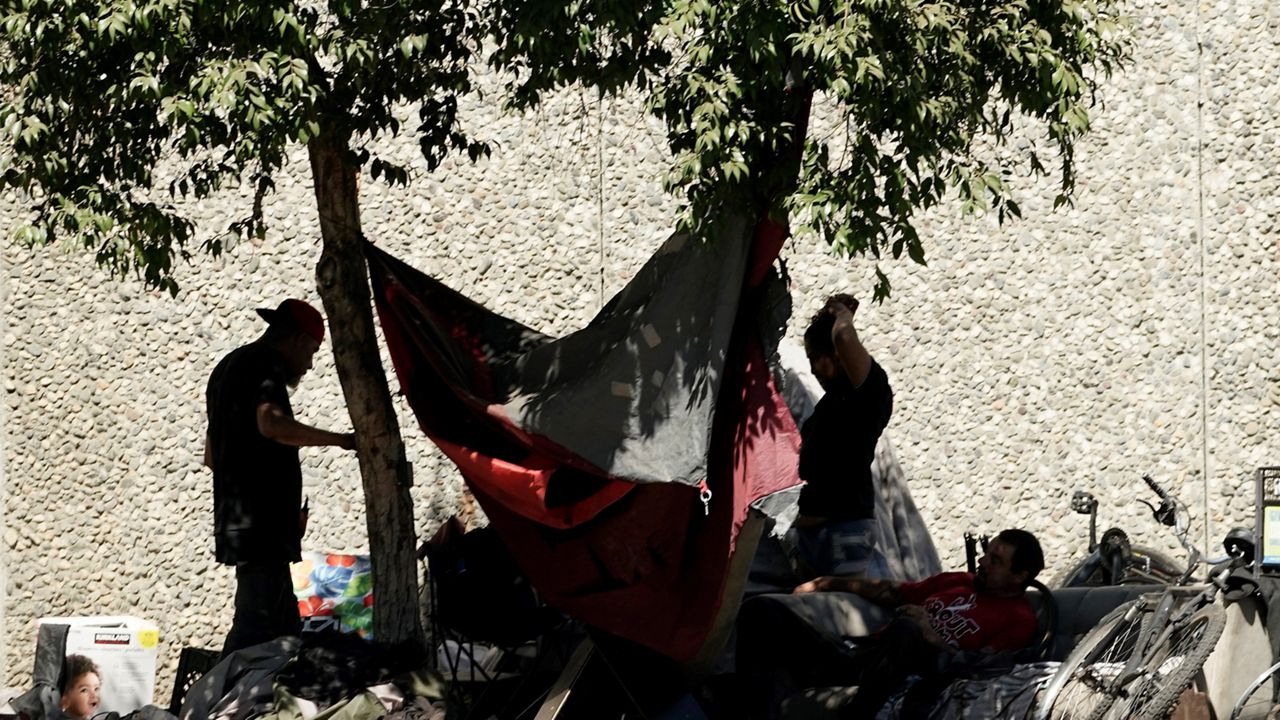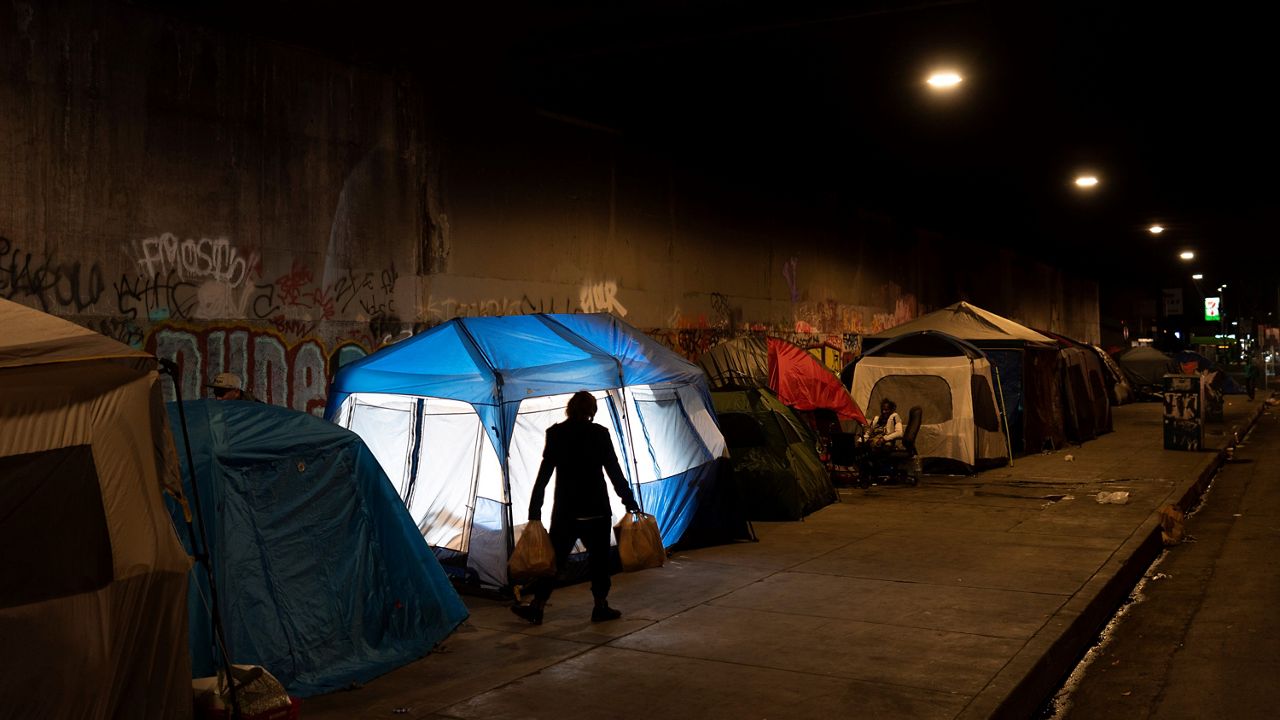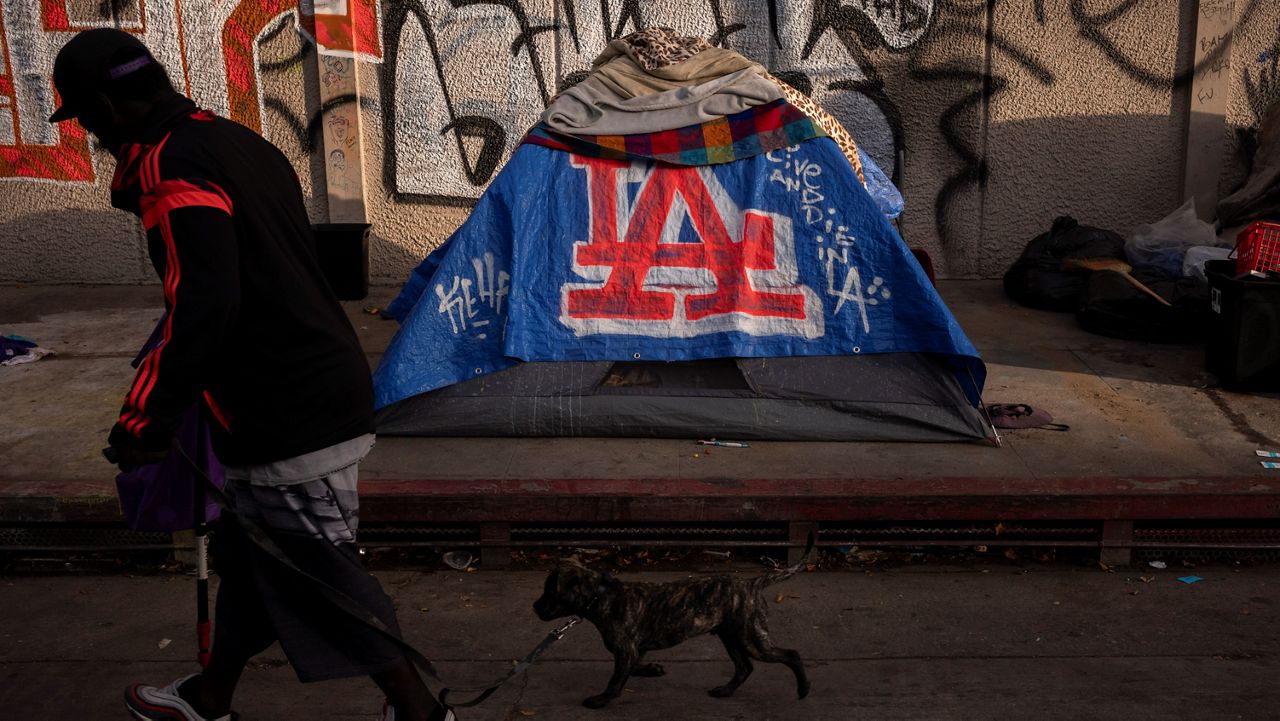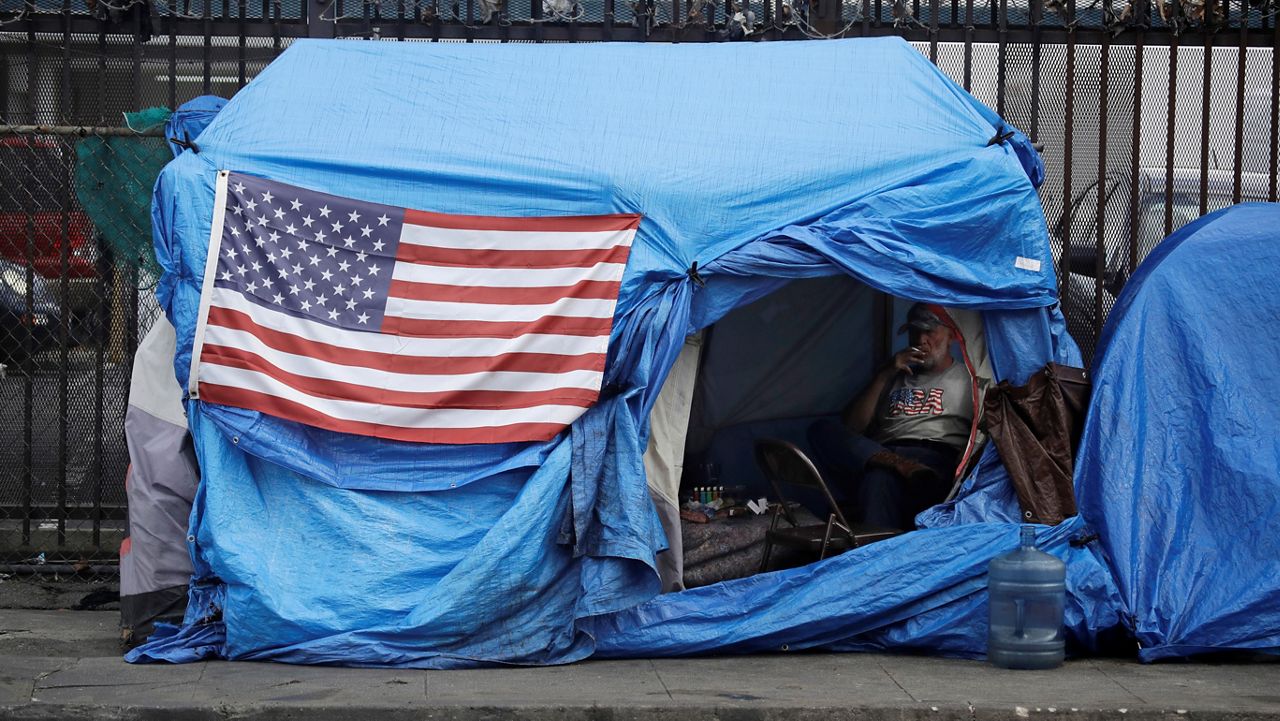LOS ANGELES (CNS) — Attorneys for the city and county of Los Angeles have filed motions seeking dismissal of a revised lawsuit demanding local government find shelter for the thousands of people camping on sidewalks and near freeways.
The LA Alliance for Human Rights — plaintiffs in the closely watched federal lawsuit — filed its amended complaint last month after an appeals court struck down an unusual court order that would've required the city and county to offer shelter and treatment to all homeless people living in downtown's 50-block Skid Row within six months.
In their dismissal motion, county attorneys argue that the plaintiffs cannot point to any violation of law or harm traceable to Los Angeles County.
The LA Alliance — an association of downtown residents, homeless individuals and property owners — brought the lawsuit last year "to compel the county to spend hundreds of millions of dollars pursuant to their own agenda because, at the core, plaintiffs disagree with the county's policies and allocation of funds, and believe they know better how to address homelessness," the county alleges in the document filed in Los Angeles federal court.
In a statement late Friday, LA Alliance spokesman Daniel Conway said Los Angeles residents would be better served if elected officials concentrated on finding shelter for people living outdoors rather than filing motions.
"With winter right around the corner, the city and county should be focusing their energy and resources on getting as many people off the streets as possible," he said. "This would have the benefits of saving lives, providing treatment and services, reducing crime and violence in our neighborhoods, and reclaiming public spaces for the entire community.
"Instead the city and the county of Los Angeles spend taxpayer dollars grasping at every legal escape hatch. We hope their New Year's resolution is to get serious about comprehensively addressing homelessness."
In a separate dismissal motion, city attorneys contend that despite revisions, the "misguided" lawsuit still violates the separation of powers laws and intrudes into the city's "handling of complex policy issues" that should be addressed by elected city leaders not a court.
Attorneys for the city point out that nearly $1 billion was approved for homeless relief in 2020-2021, a 500% increase in funding over the prior year.
"The city does what it can on its own, and works with defendant County of Los Angeles and other state and federal partners to provide more housing, services, and resources to Angelenos experiencing homelessness," city attorneys wrote.
"It will take all of us working together to bring this crisis under control. Which is why plaintiffs' efforts to address it through this lawsuit are misguided."
The city also argues that the LA Alliance complaint "is still not viable" because the plaintiffs have "again failed" to state claims that entitle them to relief.
Skip Miller, outside counsel for Los Angeles County, said in a statement that the county "understands and shares the urgency of addressing the humanitarian crisis of homelessness in our communities."
"Unfortunately, this lawsuit has never been the right vehicle to get us there — not when it was originally filed and not now in its amended form," Miller said. "This is an all-hands-on-deck issue for the county.
"Although we've housed 75,000 people since Measure H passed in 2017, and shelter capacity has soared 60% in three years, we are ramping up to do so much more. This lawsuit is a well-meaning but legally flawed distraction from this work at the very time we need a laser focus on solving this deeply entrenched problem."
A hearing was set for Jan. 24 before U.S. District Judge David O. Carter to discuss the city and county's dismissal motions.
The plaintiffs' revised complaint addresses some of the procedural issues identified by the U.S. 9th Circuit Court of Appeals, such as the addition of an equal protection claim based on race, which were missing from the original filing.
The filing also updates purported factual allegations and adds plaintiffs. The changes conform the complaint to support claims that housing failures and racism have caused and exacerbated the homelessness crisis and that the alleged lack of action by the city and county include a discriminatory component, according to LA Alliance.
Those arguments are aimed at securing a second injunction against the city and county to provide shelter and treatment to the unhoused on a strict timetable and to start regulating public spaces such as sidewalks and parks.
"Our actions will break through the legal and bureaucratic logjam that has failed those on the streets and our neighborhoods," the Alliance said in a recent letter to supporters.
"In addition, our parallel effort to build grass roots and coalition support ... will put (local officials) in a corner, especially with the upcoming elections."
The Los Angeles City Council recently approved a ban on camping at nearly 60 locations, using a new ordinance approved in the summer. The council outlawed sitting, sleeping and lying at 54 locations and enacted new rules regulating sitting, sleeping and storing property near fire hydrants, building entrances, driveways, libraries, parks, elementary schools and other locations.
The council also asked for the expansion of resources for homeless people in these locations and for the development of new procedures to make sure those sleeping on sidewalks aren't rousted without notice.
At nearly $1 billion, the city's budget for the homelessness problem aims to create over 5,000 additional housing units through Proposition HHH, and includes nearly $200 million for the development of affordable housing, homeless prevention, eviction defense, and other homeless services, officials said.
The LA Alliance recently applauded what it called a "massive shift" in policy in which local officials are moving toward increasing interim shelter beds, support services and starting to clear encampments in a nonviolent manner. Homeless encampments are now being cleared "humanely and compassionately," according to the association.










